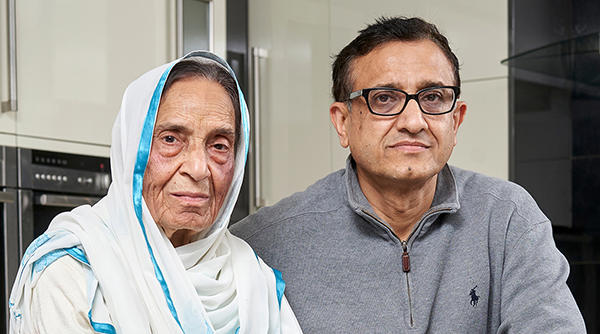Indeed, one of the main driving forces for many who enter the medical profession is the desire to help people, directly through the giving of care to patients and, by extension, to patients’ relatives.
It is a perverse inequity, therefore, that many overseas doctors working in the NHS face an uphill and often insurmountable challenge, when it comes to being granted the right to bring older and dependent members of their family to live with them in the UK.
Following a tightening of immigration rules under the former prime minister and then home secretary Theresa May in 2012, doctors, along with all other non-EEA residents living and working in the UK, face stringent and onerous requirements when applying for a visa for a dependent relative such as a parent or grandparent.
Under these regulations, doctors must not only satisfy the Home Office that their family member requires long-term care, but that such care cannot be obtained in their relative’s home country.
Doctor deterrent
For international doctors who have chosen to work in and make the UK their home, the psychological impact of being told they cannot care for their relatives here can be enormous, forcing many to feel as if they have no choice but to abandon their careers in the NHS and relocate abroad.
Speaking at the BMA annual representative meeting, Lincolnshire associate specialist in general surgery and internationally qualified doctor Veera Karri (pictured), warned that the hurdles involved in bringing dependent family members to the UK was driving many talented and experienced doctors away from the NHS.
‘GMC figures between 2015 and 2020 show about 6,000 to 7,000 [international] doctors have asked for their names to be removed from the register as they’re moving to work overseas,’ he says.
‘One of the main reasons for this exodus is parent care anxiety caused by Home Office reluctance to grant visas to dependent elderly parents.’
‘If we look at the recent survey by BAPIO, 91 per cent of respondents who had failed to get these visas for their elderly parents were left feeling anxious, frustrated and helpless and 85 per cent of them had considered moving away from the UK.’
Mr Karri said that, of the 908 visa applications submitted to the Home Office between 2017 and 2020, just 35 had been approved.
A trial
 AKHTAR: Two year fight to bring mother to UK
AKHTAR: Two year fight to bring mother to UK
The Kafkaesque ordeal faced by many overseas doctors when applying for a relatives’ visa is one that has previously been illustrated to the BMA by East Midlands consultant endocrine surgeon Irfan Akhtar.
Mr Akhtar fought an almost two-year legal challenge before winning the right to bring his elderly and infirm mother from Pakistan to the UK.
His initial application had been rejected by the Home Office despite him proving that his mother could not access adequate care in Pakistan and that her care in the UK would be privately funded.
Speaking to the BMA in January this year, Mr Akhtar, despite all his experiences, still considered himself ‘one of the lucky ones’.
In calling for the BMA to recognise the huge contributions to the UK of NHS staff from overseas and the psychological impact of not being able to look after elderly parents abroad, Mr Karri called for the association to lobby the Home Office to relax and simplify visa procedures concerning dependent relatives.
‘We’ve heard all morning that we have vacancies and a shortage of staff in the NHS and a record-breaking backlog of waiting lists,’ he says.
‘We talk about recruitment all the time but what are we doing for the retention of these experienced and fully-trained members of the medical workforce?’
Relax the rules
In endorsing the motion, which was passed by members of the association’s representative body, association council chair Chaand Nagpaul said that easing immigration rules was humane and in the interests of the NHS.
‘In January 2021, the BMA co-signed a letter together with British Association of Physicians of Indian Origin, the Association of Pakistani Physicians of Northern Europe and many other medical royal colleges to the home secretary to seek removal of this unfair and inhuman rule,’ says Dr Nagpaul.
‘We are working with other organisations and this is something we feel very strongly about and we want to see changed.’

